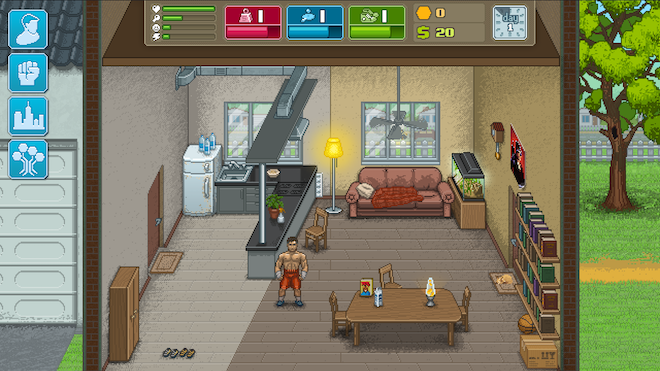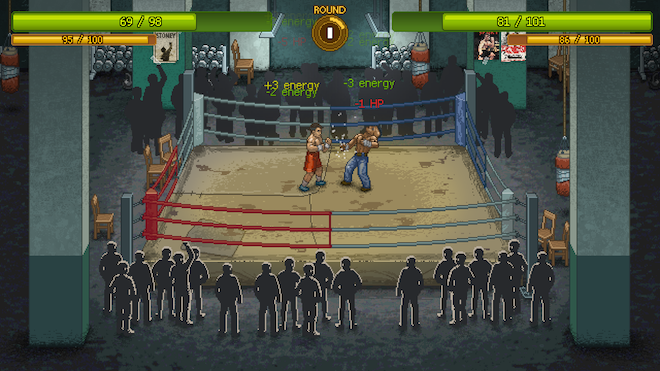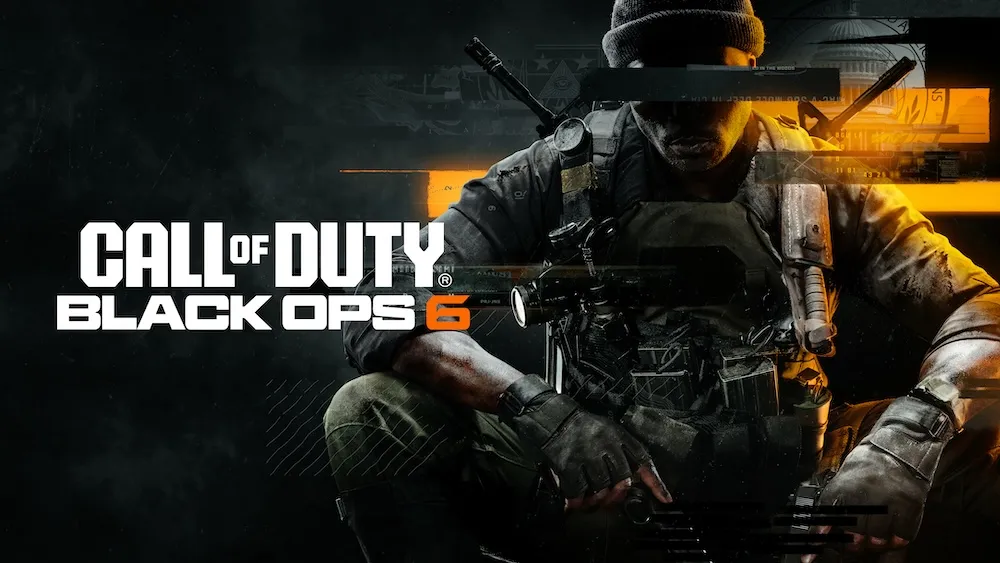Punch Club, from developer Lazy Bear Games, is not a boxing game, it’s a game about boxing. A life sim where the main character is a boxer, and while fighting does play a role, eating, working, and sleeping are just as important. Punch Club takes its love of pop culture and the 1990s, and punches them together to create a memorable gaming experience that is more fun than it should be.
Punch Club is the story of a young boxer whose dad was murdered years before, and who now works at living his life, all the while trying to fit in a boxing career. This boxer lives in a tiny house and sleeps on a couch. He has to work to make money to buy food, pay for time at the gym to train, and of course eat and sleep. He enters a boxing tournament and every few days he has a fight. He starts at the bottom of the chain and has to fight his way up, all the while dodging the punches that life is throwing him. And it all works surprisingly well.
Going to work, meeting new people, making friends — including a girlfriend (named Adrian, of course), and balancing eating, resting, and training are the true bread and butter of Punch Club. In fact, all of the fighting is handled by the CPU. The player can switch out fighting styles and perks, but the actual contests, whether sanctioned in a ring, or against criminals in the streets, are all handled by the game. This makes it interesting, and adds a new layer of complexity, as the training tree for the boxer is quite extensive. The player can unlock not only bigger and better techniques, but also fighter philosophies, depending on the type of fighter they are aiming to create. Those philosophies can then be switched out depending on the upcoming opponent.
Punch Club focuses on three main areas of training: strength, speed, and stamina, and the player has to balance them all, or choose to max out one while neglecting the others. There is a short period from when the boxer signs up for a fight to when the actual fight happens, giving the player time to train the needed stats to win that match. For something simple, this gets staggeringly complex — in a good way. Punch Club may be an indie title, and the presentation is 1994 SNES caliber, but that doesn’t mean there isn’t a deep simulation to be played here.
As mentioned, Punch Club uses 16-bit pixel graphics, and the music is MIDI-based chip tunes. It gives the game such an amazing throwback feel to Nintendo’s Punch Out!! and other games of the era, like Bad Dudes, and Teenage Mutant Ninja Turtles. The latter has a major influence in Punch Club, as the game is littered with homages to TMNT, up to and including a pizza shop owner named Casey who has customers that live in the sewers and wear colored headbands. Other pop culture references are there, including the Rocky references and even the 1999 film Fight Club. Eventually, the boxer himself becomes a super hero calls the Dark Fist, which adds another level of complexity — and another life event to juggle — to succeed in this game.
Punch Club is deceptively deep and incredibly fun. I cannot stress that enough. It is fun. I would boot the game up and start playing, only to realize that hours — multiple HOURS — had gone by. I lost myself in Punch Club, and I’m slightly embarrassed by the amount of time I’ve spent playing, living, and fighting in this tiny, 16-bit world. The fun factor is off the charts, and even when I got frustrated at losing matches and scrounging for cash by delivering pizzas, and living off of energy drinks, the next day brought a new chance to make things right, and those days led to weeks, and then to months, and I slowly climbed the ranks of the boxing world during the day, and kept the streets clean from crime at night.
Punch Club succeeds in almost every way. That’s a heady accomplishment for an “indie game.” If things get too tough, it’s not the game, or the coding, it falls on the shoulders of the player. Choices play a huge role here, and developer Lazy Bear has given players plenty of choices to make in how they exist in this game world. If you just can’t seem to get a leg up on life, your boxing career, or your crime-fighting gig, you can always reset and start again. The path to success is there, just like in real life, but it takes a good balance of the everyday stuff to succeed. Life isn’t easy, and neither is Punch Club. It’s the hard that makes it great.
Punch Club is available now for the Nintendo 3DS, PS4, and Xbox One. This review is based off the Xbox One version, provided by the publisher.







